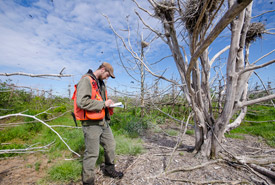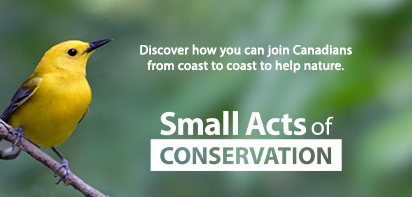Supporting applied conservation research

Josh Noseworthy records data amidst a double-crested cormorant rookery. The acidic cormorant excrement has killed a large portion of the spruce trees on Governor's Island, but they still provide excellent nesting habitat for cormorants and herons alike (Photo by Sean Landsman).
Donations to support the development of conservation research partnerships are welcomed, and will support the Nature Conservancy of Canada's (NCC’s) small grants program. For more information, please contact Samantha Knight.
What the Applied Conservation Research Program supports:
- conducting multidisciplinary, applied research on conservation issues and solutions that informs NCC work and that of our partners;
- building professional development of emerging conservation scientists by providing training opportunities to staff and students;
- encouraging and facilitating effective information exchange between NCC, researchers and national and international stakeholders and partners. For example, researchers will share their results at international conferences and in peer-reviewed journals;
- bridging the gap between conservation research and action by guiding the research community in Canada and beyond to ensure that research topics are relevant, and that conservation practitioners are engaged and informed by results.




